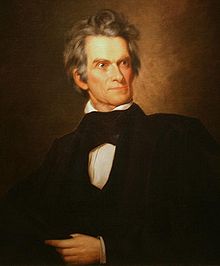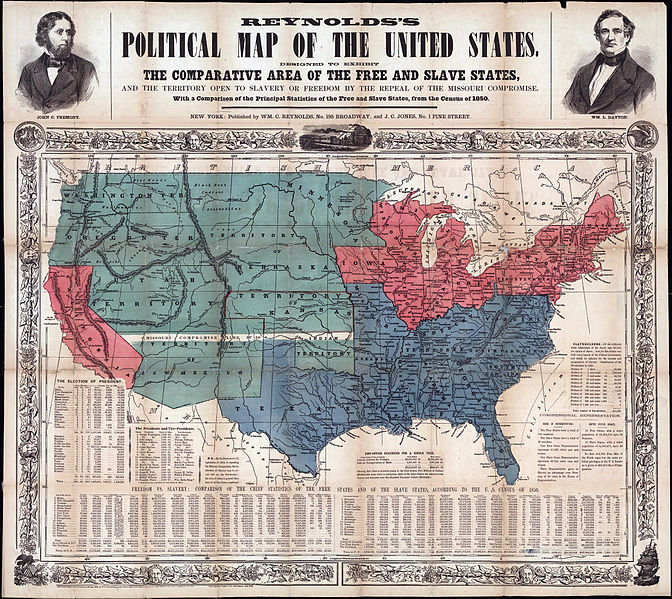In the century and a half since the war’s end, historians, politicians, and laypeople have debated the causes of the U.S. Civil War: what truly led the Union to break up and turn on itself? And, even though it seems like the obvious answer, does a struggle over the future of slavery really explain why the south seceded, and why a protracted military struggle followed? Can any one explanation do so satisfactorily?
Historian George B Forgie has been researching this question for years. In this two-part podcast, he’ll walk us through five common–and yet unsatisfying–explanations for the most traumatic event in American history.
Guests
 George B. ForgieDistinguished Teaching Associate Professor in the Department of History at the University of Texas at Austin
George B. ForgieDistinguished Teaching Associate Professor in the Department of History at the University of Texas at Austin
Hosts
 Henry Alexander WiencekIndependent Scholar
Henry Alexander WiencekIndependent Scholar
It’s been over 150 years since the beginning of the Civil war, yet there still seems to be debate over the precise causes of southern secession and the military conflict that followed. Can you talk about some of the explanations that both scholars and non-scholars have given for what caused this turn of events?
The first thing that I would say is that you aptly separate disunion from the war that followed. Sometimes, in fact most of the time, people tend to say, “What was the cause of the American civil war?” and what they’re really talking about is the causes of disunion, why the south seceded and why the north reacted the way that it did, and why we go from secession into civil war is a related question, but still it’s a distinct question.
Back to your question.
I would guess that there’ve been hundreds if not thousands of books, articles, and talks that attempt to explain secession of the southern states, and it would be impossible for us to track them all. I tend in my own mind to divide them up into five broad categories.
The first would be slavery, the problem of slavery led to disunion.
The second would be economic differences between the sections led the south to secede.
The third would be constitutional: Differences between the sections over the meaning of the constitution and the structure of the government of the constitution provoked secession.
The fourth one would go beyond those to say that the problem with the first three is that they are mono-causal: they take a complicated event and try to attach it to one single factor, and they will go on to say it wasn’t one thing, it was several things. And, in fact, the North and the South had grown into two distinct societies over the decades since the beginning of the government. And it’s only natural, like children growing up, that they would eventually need to go their separate ways. And that’s what you need to look at when you’re trying to explain secession.
And the final explanation is sometimes called by historians the “blundering generation” interpretation of secession, and that goes something like this: the fallacy of the first four–slavery, economic differences, constitutional differences, and broad societal differences in two societies–is that they take for granted that because the result of the war is such a cataclysmic event, taking hundreds of thousands of lives, that there’s nothing else like this in American history. It’s arguably the biggest event–secession and civil war–in our history, that it must have a cause that’s equally large. And if you think for a moment about a terrible, terrible traffic accident that’s caused by a moment’s distraction on the road, you can understand that not all events have causes that are as serious or dramatic as the result. So, that would be the fifth one: that politicians just blunder away toward the edge of the cliff, having of course no idea what’s going to happen after they make certain decisions and take certain steps, but one thing followed another, and we find ourselves with states leaving the union.
I think that a lot of people are familiar with the explanation that slavery caused the civil war. Perhaps they aren’t as familiar with the explanation that it was either an economic cause or a constitutional cause. Could you briefly describe some of those explanations for the civil war – how economics or constitutional politics played a role?
Yes, and while I’m doing that I can also indicate why some people have a problem with those explanations —
Absolutely.
The argument about economics goes something like this–and I’m painting with a rather broad brush. Although the United States started out as a commercial-agricultural-political community, gradually the sections went in different economic directions. Large scale plantation agriculture, producing staple crops for the world market, established itself in the southern states, whereas in the north, for reasons having to do with the climate, growing season, and rainfall and so-forth, that area for the country was not suitable for large scale agricultural things and so people turned to commerce, banking, and then manufacturers. And so, by the 1860s, most of the manufacturers were in the northern states and the southern states remained largely agricultural. And, these two separate economic systems tended, according to this explanation, to compete with one another.
And specifically to compete with one another for control of the government, so that the government would look favorably upon and assist this particular element of the economy. And the specific point on which this interpretation seems to turn is the dispute over the tariff, the protective tariff.

Northerners, so the argument goes, wanted to put up a barrier to cheap foreign imported manufactured goods in order to provide kind of an incubator for a time to allow domestic manufacturers to get off the ground and compete with foreign imports. That meant that the price of these goods goes artificially up. Well, southerners, particularly wealthy southerners, imported luxury goods and other goods that they wanted or needed from Europe, and were used to paying a lower price. And now they find themselves victimized by a policy that favors northern manufacturers, in what John C. Calhoun, South Carolina politician of the 1820s-30s-40s, called Class Legislation, and that the government should not be favoring one class–the manufacturing class–over another–the agricultural class.
What happens, of course, is that the Republican Party which then, as now, is stereotyped as the party of big business, comes to power and promises that this tariff will go up to the disadvantage of southern states.
Now, here’s the problem with this explanation: nobody talked about the tariff problem. The tariff was a big issue in American politics in the 1820s and 1830s. South Carolinians tried to nullify the federal tariff, they ran into a conflict with Andrew Jackson over that, and finally they backed down. They even talked of succession then over the tariff. But that crisis was resolved in 1833, and one of the ways it was resolved was to put tariff rates, tariff duties, on a descending scale over the next 9 years down to the point that they were tolerable to southerners and agricultural interests. And, from that point on, for almost all the time leading up to the civil war, the tariff was where southerners wanted it to be. And there wasn’t much dispute about it.
Now, the Republicans came to power with Lincoln’s election, and they might–they might–want to raise the tariff, but they don’t control the Congress. They don’t control the courts. It seems very odd that, on this remote prospect that really hadn’t engaged the attention of the public in 30 years, that southern states would secede.
And then, when you look at the reasons the southern states gave for seceding–one of the things I wish everyone could read is the 1600 word statement that the leaders of secession of Texas gave in February of 1861. They issued a document explaining the reasons for secession and, in 1600 words, there is at most one line, possibly two, referring to the tariff. All of the rest of it is about slavery.
So, the problem with the economic interpretation, first of all, is that it’s not obvious that two different economies should be at one another’s throats. Two different modes of production should be in conflict – why can’t they be cooperating with one another and complementing one another? After all, the manufacturing sector needs the raw materials produced by the agricultural sector, and the agricultural sector needs the finished goods produced by the manufacturing sector, so they ought to be able to have a mutually beneficial relationship. So, that needs to be explained.
The other thing, as I mentioned, is that you assume that when people break up in a relationship — think of a personal relationship, a romantic relationship that breaks down, and one of the people in the couple wants out, almost always they talk about it. They talk about what’s bothering them before they go. And so, it’s just hard to understand why people would be silent on something that was so important that it would lead them to break up the union. So, that’s the problem with that one.
Moving on to the constitutional argument. This one, I have to say I find the flimsiest of all, for this reason: you can go down to the grounds of the capital of Texas, the south entrance, and there’s a memorial statue to the Confederates who died in the Civil War, and it says they died for states’ rights, and that the South left the union in order to preserve those rights.
They never say what those rights are that were in jeopardy, that were threatened. There’s this argument that somehow Southern states were being victimized by a violation or adulteration of the constitution by the northern states, but when you ask someone about states rights, the conversation tends to drift off.
Here’s my problem with that. If you were to run into a friend of yours from off campus that you haven’t seen for several weeks. Your friend, let’s call her Suzanne, and you say to her, “Suzanne! How have you been?”
And Suzanne says to you, “Oh, not much. I got a divorce since we last saw each other.”
And you say to her, “Why did you get a divorce?”
And she says, “Oh, I had a right to.”
Now, I don’t know about you, but I would find that I really haven’t learned anything here. States rights doesn’t explain secession any more than the right to get a divorce explains why somebody gets a divorce. There’s got to be something lying behind it. What’s lying behind it? What are the rights that were threatened? The one that comes to mind, I don’t understand how it might be refuted, is the right to own slaves. Which Abraham Lincoln indicated that he would like to see come to an end.

On that last point about slavery, paradoxically it seems like slavery is at once the most common explanation for the civil war, and also the most controversial. Can you describe the explanation, and maybe what’s at stake – why it’s controversial?
One of the reasons why slavery is one of these interpretations–and I would say over time, probably the dominant interpretation for secession, the most prevalent, the one that has the most adherents, is that slavery was the main difference between one part of the union and the other. In fact, to the point that commonly people, in talking about the sections, talk about “the slave states” and “the free states.” This was the way people in their minds divided the country up.
Slavery was the most controversial institution in the United States. When people talked about the problems that divided the sections, or put them into conflict or potential conflict with one another, the thing that they most often talked about was slavery. There were several crises of the Union that students of history are familiar with: the crisis of 1821 over Missouri, the crisis of 1850 over the territories that we took from Mexico at the end of the Mexican war, the Kansas-Nebraska Act of 1854, all of these had to do with slavery. They didn’t have to do with anything else, they had to do with slavery. The union almost came apart several times, and there’s really no debate about that.
We came to the verge of succession several times because of slavery in the United States and, whenever there were compromises to settle these crises and move past them, all of the compromises had to do with slavery.
When the southern states seceded, they said they were seceding because they thought slavery was threatened. When there were proposals put forward in the Great Secession Winter of 1860-61 about how we can avoid this crisis leading to permanent separation, all of the proposals had to do with slavery.
Now, if something else was bothering people and some other problem needed to be solved, you would expect to find proposals to solve them. Furthermore, of course, and we can’t leave this out–it’s very important–gradually through the 19th century a movement, geographically located in the free states, to abolish slavery. To demand the immediate cessation of slavery because slavery was a moral wrong: you are owning stolen human beings and you are stealing their labor and controlling every activity in their lives. And the argument developed, at first by a rather ragtag marginal band of activists and radicals, but anyone who spends time reading in the public discussion going the 19th century can sense that gradually the public in the north was becoming aware of slavery, consciousness was being raised, and coming to the conclusion that slavery was wrong and someday had to go.
So, when southerners said they were seceding because the north was becoming anti-slavery, they were correct.
Finally, the Republican party was created to stop the spread of slavery, and it nominated and then elected as its first president Abraham Lincoln, the first American politician to rise to the presidency who said in public that slavery is wrong and must come to an end.
So, it would make sense that if you were an owner of a kind of property that not only had half the nation, or more than half the nation, coming to view as abhorrent but had elected a president who had indicated that he was going to do away with that kind of property, it might make sense that you would consider secession in order to protect that property. So, those are some of the reasons why the idea that slavery led to disunion is compelling to many people.
We’ll cover the reasons why the explanation about slavery is a controversial explanation in Part II (click here to go to that episode).